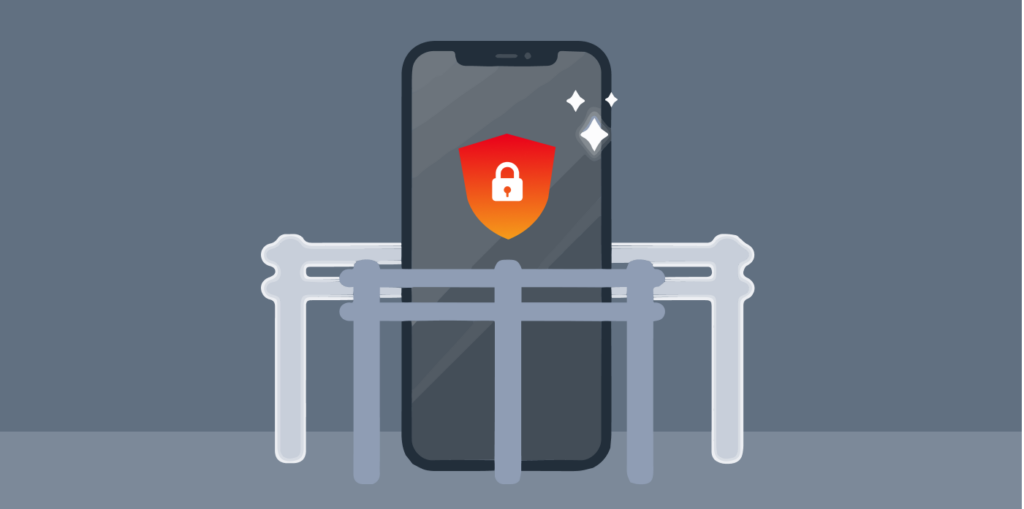Telegram is a leading messaging platform with over 700 million monthly users worldwide. The app was created in 2013 by Nikolai and his brother Pavel Durov, the creators of VK, a Russian social media and networking service.

Many privacy-oriented people prefer the platform for its security features and ability to maintain a safe user environment. But Telegram doesn’t come without its shortcomings.
So, is Telegram safe from hackers and the government? Is it safe to send private photos and make video calls? Is it safer than WhatsApp, and which are the best alternatives to Telegram? This guide answers it all.
How Secure is Telegram?

Telegram is popularly recognized for its safe online community. The app provides protected encrypted messages in transit to reduce the possibility of interceptions. This encryption ensures that no one can interrupt you when sending your messages, not even Telegram.
Only the intended recipient can decrypt the content. Also, the decryption only happens on the receiver’s device using a special key. When the key on the device matches that of Telegram’s server, the receiver can easily read the message’s contents.
The only challenge is that Telegram handles a similar description key on their servers. The app could theoretically decrypt and then read your messages and encrypted content.
This process explains that your messages aren’t 100% safe because anyone accessing Telegram servers could read your personal data. And, in the worst-case scenario, your data could be a target of hackers and other cybercriminals who’d succeed in breaching the Telegram servers.
In light of this scenario, Telegram has introduced the Secret Chats feature to increase the safety of online communication over the app.
Also, Telegram is marred by lots of scams. Many scammers use family-related tricks to get users to give them money and personal information.
Does Telegram Offer End-to-end Encryption of Messages?

Telegram only offers end-to-end encryption using the Secret Chat feature, which has a client-to-client encryption policy. The feature stores the cryptographic encryption and decryption keys on the user devices instead of the Telegram servers.
With the Secret Chat feature, Telegram ensures that no texts or files that you send or receive can be accessed by third parties. Neither your Internet Service Provider (ISP) nor hackers or Wi-Fi routers can intercept your traffic to read your Telegram messages.
Also, Secret Chat is not part of the Telegram cloud, which you can access on any device. The cloud allows you to access your Telegram chats and files from any device you sign on to. However, the Secret Feature stores your messages only on your device; therefore, you cannot access it on any other device.
This limits the possibility of double logins, which would otherwise expose your confidential messages to third parties. The secret chat is, therefore, confidential throughout the sensing, transmission, and even reception process.
Here are the top Telegram’s security and privacy features of secret chat:
- End-to-end encryption
- Does not save data on Telegram servers
- No forwarding of messages
- Self-destruction of messages
For How Long Does Telegram Keep Your Data?

Telegram collects your interactive data, including device information, IP address, and browsers, and stores it for about 12 months. The messaging app abides by the law to keep some of your personal data and even provide it to the authorities for investigations.
The company is registered in Dubai, United Arab Emirates, where it has its headquarters. So, Telegram must cooperate with its authorities.
If you have matters with the authorities, the investigators can cooperate with Telegram to pursue your case. Telegram’s Privacy Policy provides more information on how they collect, store, and handle all the data they collect from you.
Which Cryptographic Protocols Does Telegram Use?

Telegram has a unique proprietary encryption protocol to safeguard your messages and communication on its platform. The MTproto is a protocol specifically created by Telegram to send far-mobile messages on different devices.
The protocol blends several cryptographic algorithms, including the RSA 2048-bit encryption, which offers cryptographic key exchanges, and the AES-256-bit message encryption. The protocol also employs the Diffie-Hellman key exchange, which works well when secret chats are used on unsecured communication channels.
However, several experts and cybersecurity analysts are on Telegram’s case, criticizing the protocol’s overall security. Telegram uses its proprietary cryptographic algorithm protocol, which is not available for security analysis to evaluate.
Because it is not open source, the protocol limits the analysis and evaluations from independent security experts. So, no independent security analyst can possibly estimate the full scope of this protocol’s vulnerability.
Is there a Risk in Using Telegram?

As with all online applications, Telegram is not without risk. The platform has several security concerns, including:
- While Telegram claims to be open source, only the client’s code is public, but the code on the server’s end is not. Telegram also encrypts the communication using a proprietary protocol called MTProto. Many cybersecurity analysts are skeptical about the protocol’s security because it is not available for evaluation.
- Professionals prefer using standard-reviewed cryptographic libraries rather than depend on new proprietary protocols with unknown security capabilities.
- The app’s People Nearby feature lets you see which Telegram users are near you. This feature uses location data to identify people in your area and add them to your contact list. While this feature can sound fancy, it could give potential stalkers and hackers a clue about your precise location.
- Telegram collects and stores your data on its servers, including your name, device info, and IP addresses. The platform assures users that they can share the data with third parties as the law requires them to do so. For instance, Telegram could share your data with investigators of a terrorist or criminal case in which you’re a suspect. However, this kind of data could be dangerous if it landed in the hands of a criminal during a breach. Such personal information could end up on the dark, deep web.
Safe Telegram Alternatives

Telegram remains one of the most popular messaging apps focused on your privacy. But, it is not the only one. We list a few of the top Telegram alternatives to make your messaging safe and secure.
1. Wickr
Wickr is a social media application that provides free end-to-end encrypted messaging services. The service lets you send other users private texts, videos, pictures, and voice recordings. Weak social Media platform hides your actual location and does not attach any geotag information to the media’s own messages you share.
The platform also offers destructive messages for the text of files you send. The safety-oriented application will block third-party keyboards and detect screenshots.
Also, Wickr has a security feature that verifies the identity of your connections. The video verification requires users to send a short video of themselves as proof of identity.
2. Signal
Signal is one of the most secure messaging apps offering default open-source end-to-end encryption. It relies on open-source encryption protocols evaluated by independent online security professionals. So the platform is indeed safe because it is tested and keeps receiving patches pinpointed by the evaluators first up
Moreover, the application has a Sealed Sender feature that will hide your identity, and its servers will not save any information you send through this feature. You can also set the time you want your messages to disappear. Again, Signal lets you blur the faces of the people in the pictures you send to safeguard their privacy.
And, when you want to block any attempts for the receiver to take screenshots of your chats, you can use the Secret Security feature. Still, you can create a PIN to protect your profile from snoops.
Signal beats the social media companies on the privacy issue because they do not allow any trackers or advertisers to collect your user data. So, they only collect minimum information about you to make your assignment and communication possible. Every conversation on the platform requires a unique private number with which both parties in the communication verify their respective identities.
3. WhatsApp
Possibly the most popular messaging app with end-to-end encryption is Meta’s WhatsApp, which is used by Facebook. The app is popular for its secure messaging features and lets you control who can view your status or online presence.
For instance, you can choose who accesses your profile picture and other personal information. Then, you can add your contacts to groups, but you can still decide who adds you to their channels or groups.
WhatsApp also lets users send self-destructing files, which are deleted immediately after the recipients see them. The good thing is that all WhatsApp messages are stored locally on the senders’ and recipients’ devices. Nothing goes to the WhatsApp servers except for your phone number. You can also back up your WhatsApp history backup on your device’s local storage or iCloud and Google Drive.
However, it’s important to note that Meta owns Whatsapp, which also owns Facebook and Instagram. Over the past few years, Meta has been accused of harvesting its users’ data, and Facebook got involved in a few user data leaks. Hence, WhatsApp has several security concerns, too.
In 2021, the European Union privacy watchdog GDPR penalized WhatsApp with $255 million for failing to explain how it handles user data. The GDPR also accused WhatsApp of sharing user data with other Meta companies and apps, including Facebook and Instagram.
Then, in 2018, Facebook and its affiliate companies were part of a scandal in which a British political consultancy company, Cambridge Analytical, harvested the user data of billions of users on the company without consent.
A Comparison of the Most Popular Secure Messaging Apps

The four messaging apps we’ve listed in this post Wickr, Signal, Telegram, and WhatsApp, offer secure communication channels. But is Telegram safer than WhatsApp, Signal, or Wickr?
Well, their features differ in terms of encryption, data collection, and message destruction. This chart compares different secure messaging applications:
| Feature | Telegram | Wickr | Signal | |
|---|---|---|---|---|
| Encryption protocol | Proprietory MProto | Open source | Open source | Proprietory |
| Self-destructing messages | Available in Secret Chats only | Turn on for all messages | Turn on for all messages | Turn on for all messages |
| User Data collection | Moderate | Minimal | Extensive | Minimal |
| End-to-end encryption | Secret chats only | Default | Default | Default |
| Geolocation data | Voluntary | Voluntary | Voluntary | Voluntary |
How Can I Use Telegram Securely?

Telegram markets itself as a safety-focused social media application. It claims to provide more security to the user than the ordinary messaging apps. But it has fare share of vulneraiities especially when it it comes to online privacy. So you need to be a little bit careful when sending messages over Telegram.
Here are a few additional online security measures you should use whenever you’re communicating on Telegram:
- Have a strong password: Every password you use should be difficult to guess. Make sure that every all your login details has a minimum of eight characters, which combines numbers, in symbols, lower and upper cases letters. Do not use the same password for all your accounts but instead have a password for every login. Also make the password you need difficult to guess, which is why you shouldn’t use common words or your date of birth. Try ExtremeVPN’s free password generator tool to help you get a new strong password for yourself.
- Employ two-factor authentication (2FA): Set up a two-factor authentication defense against any third parties or hackers who would want to steal your Telegram account. 2FA prompts you to provide a unique code sent to your device to open the account. So, you will need both your password and the code to authorize the account unlocking.
- Use the secret chat: Telegram’s secret chat feature will provide end-to-end encryption for all your messages and fires you send our receipt. This increases your online safety and prevents any inappropriate interceptions of traffic.
- Update your Telegram app regularly: Make sure to have the latest version of the application. Telegram fixes their code regularly to remove any threats and vulnerabilities. It keeps your application to the latest version and shows that you have the latest security purchase.
- Tweak privacy settings: First, visit your Telegram app’s privacy and security section and limit who can access the information you post. You can also limit who can see your phone number status and profile information.
- Use the auto-delete messaging feature: This feature lets you set the time at which messages sent or received can be automatically deleted. You can apply this setting to sensitive messages that you want to protect from snoops.
- Log in with another phone number: You can use an extra phone number to sign up for Telegram and other messaging applications. So, in case other parties invade your privacy and get your phone number, they will not get you. Also, you can tweak the Telegram settings and change who can see your phone number.
- Get a virtual private network VPN: A robust VPN such as ExtremeVPN will encrypt your data and traffic, hide your IP address, and prevent hackers and other snoops from tracking your online activities. ExtremeVPN stands as the best Telegram VPN, adding a new, strong layer to your online security.